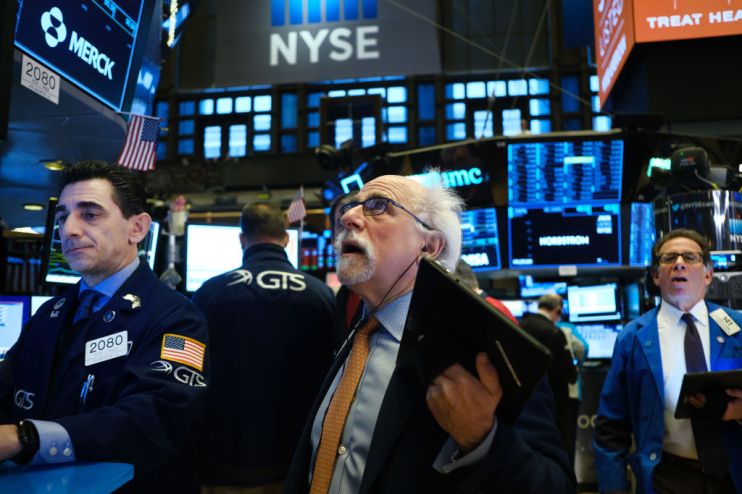Coronavirus sends US markets into the red

US stocks markets opened sharply lower this afternoon as investors grew fearful that the coronavirus outbreak – which has killed 81 – will damage the global economy.
The S&P 500 was down 1.3 per cent shortly after the bell, while the Dow Jones was 1.2 per cent lower and the tech-heavy Nasdaq had fallen 1.6 per cent.
The number of confirmed cases of coronavirus rose roughly 30 per cent to 2,744 today. About half of them were in Hubei province, whose capital is Wuhan, where the outbreak began, and there have been no deaths outside China.
Yet the Chinese government has cautioned that it expects the spread of the virus to accelerate, and has confirmed that it can spread in its incubation period, making it harder to tackle.
Stock markets fell across the world, Britain’s FTSE 100 fell 2.2 per cent, France’s Cac 40 fell 2.6 per cent, Germany’s Dax sank 2.5 per cent, and the Eurostoxx 600 fell 2.2 per cent.
Stocks with strong links to China were the most badly affected. On the Nasdaq index – which is loaded with tech firms – hard drive-maker Western Digital, graphics firm Nvidia, and American Airlines were among the biggest fallers.
“The bottom is falling out of this market as traders attempt to gauge the potential impact that the deadly, aggressively spreading coronavirus could have,” said Fiona Cincotta of online trading platform City Index.
George Lagarias, chief economist at Mazars, said investors were asking themselves whether coronavirus heralded the end of the decade-long business cycle.
Yet he said if “modern medicine and containment tactics succeed as they have done some many times in the past, then investors may be best served by remembering that volatility may be a tactical opportunity for those waiting to buy at lower prices”.
Investors fled to safety as they sold off shares. Spot gold rose 0.6 per cent to $1,579.6 and the Japanese yen climbed 0.4 per cent against the dollar.
The yield – which moves inversely to the price – on the US 10-year Treasury bond fell eight basis points to 1.607 per cent.
Tommy Wu, senior Asia economist at consultancy Oxford Economics, cautioned that “it is still too early to gauge the extent of the coronavirus outbreak”.
He said the “outbreak could potentially be a high impact but short-lived event, similar to the Sars [virus] experience in 2003.”
“As such, we think that the current virus outbreak poses a downside risk to our China growth forecast, particularly in the first quarter and possibly the second quarter should the outbreak be prolonged. But beyond that the impact should begin to fade.”